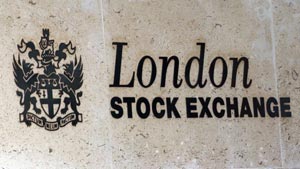Equity funding is the way forward for small businesses that find borrowing from banks blocked, says the CEO of the London Stock Exchange.
Xavier Rolet was discussing business finance on BBC Radio 4’s Today programme and argued that while banks are not lending to businesses because of the credit squeeze, equity finance is an option entrepreneurs should consider.
“The nation is reinventing equity funding instead of looking to debt finance,” reports specialist investment web site seis.co.uk.
“That’s good news for business and the economy and removes one of the problems that sometimes makes the British economy stall.
“Too much reliance on the banks is not good for businesses.”
Equity advantages
Rolet also pointed out that giving away some equity had advantages for many small businesses.
The move aids cash flow as selling shares in a company does not involve taking on debt and expensive capital and interest repayments that eat into cash flow, he said.
Instead of fixed payments to banks, equity investors take dividends based on profits and they offer entrepreneurs additional skills and experience as mentors, as they have an active interest in seeing the company they put cash in succeed.
Rolet also discussed a downside of buying shares in a business for many investors – the cost of due diligence.
The preparation work for injecting capital can cost up to £50,000 on top of the cash stake, which is a sum beyond the reach of many investors.
Tax breaks
However, Rolet told the programme that the government will exchange generous tax breaks to encourage equity investors to come to the market.
The Seed Enterprise Investment Scheme (SEIS) for start-up businesses has a 50% reduction on income tax paid in the year of investment which is worth up to £50,000 on a maximum SEIS investment of £100,000, according to seis.co.uk.
Investors also reap rewards from capital gains tax exemptions and reliefs if they liquidate assets to raise cash for a SEIS investment, while any growth in the value of their stake in the company is CGT-free, as long as shares are held for at least three years.
If a SEIS start-up fails, a back-stop for investors holding shares is loss relief against tax due on other income.
The Department for Business, Innovation & Skills reckons due diligence for a small SEIS investment costs 10% of equity stake – which adds £10,000 to the maximum £100,000 investment.
The Enterprise Investment Scheme (EIS) offers tax breaks to investors staking larger sums for equity in companies seeking to grow.
Meanwhile, the National Audit Office stresses the important of equity finance in a report that estimates entrepreneurs face bridging a potential £22 billion funding gap by 2017, which is the shortfall between cash small businesses are likely to raise and the amount they need to carry on trading.
